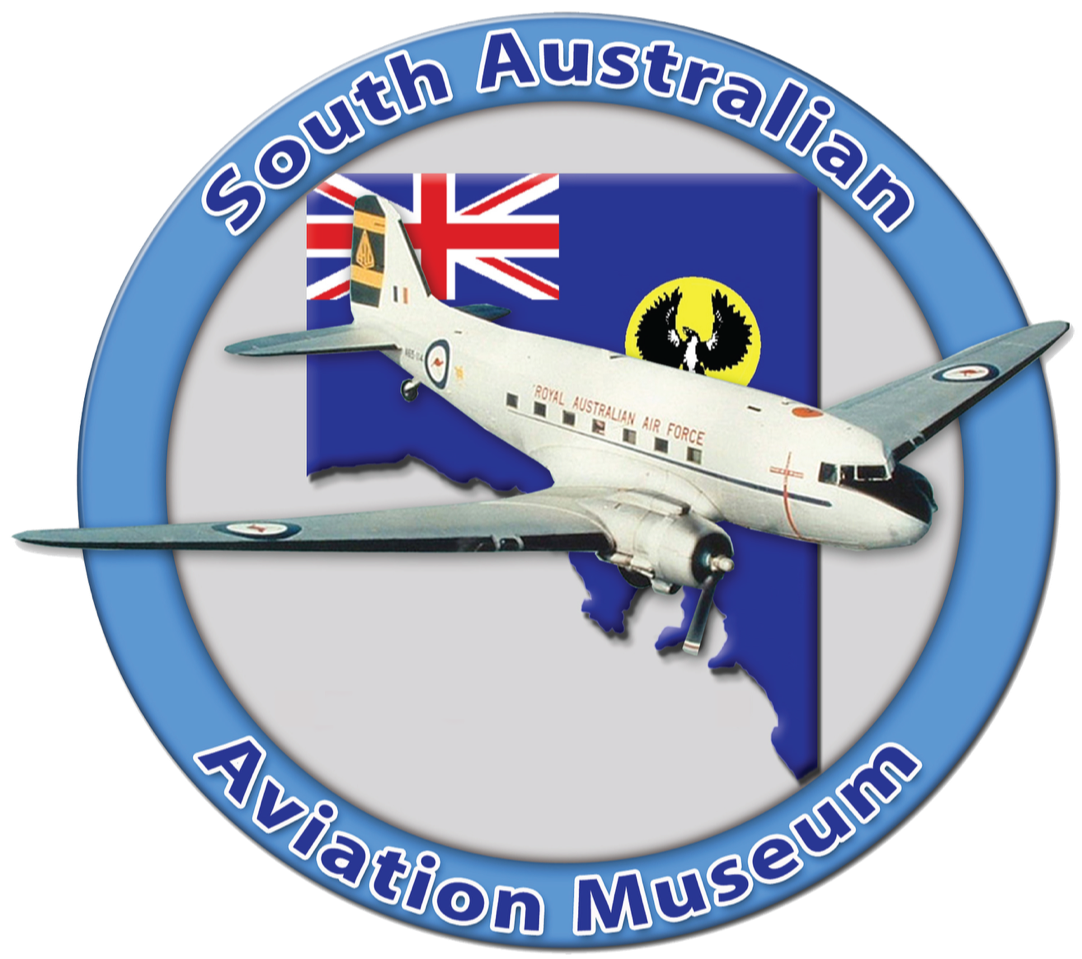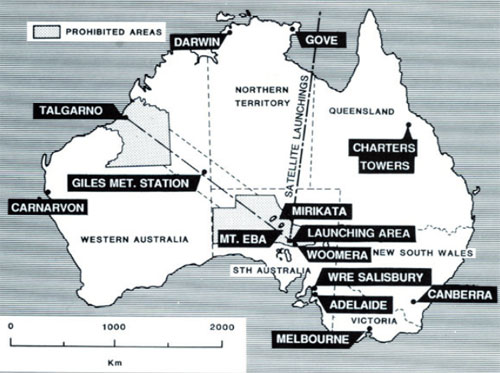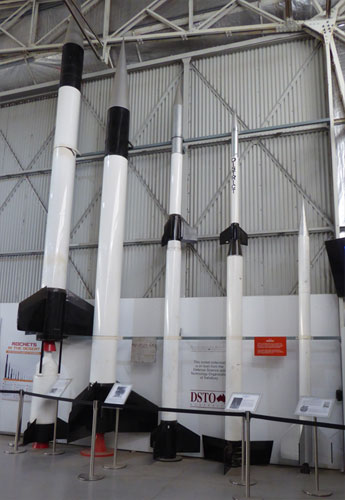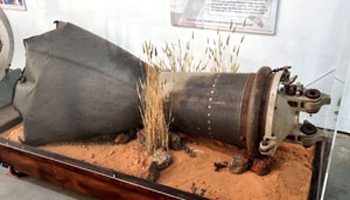Australia and the United Kingdom formed the
Anglo-Australia Joint Project in 1946 to develop and test guided weapons. In 1947, they established the long-range weapons testing facility at Woomera. In the following years, the township of Woomera was established to provide accommodation and facilities for personnel - scientists, technicians and ancillary staff and, for many years, the town was a restricted facility.
Weapons designed by the Joint Project and tested at Woomera include the Sea Wolf, Sea Slug, Rapier, Sea Dart, and Bloodhound surface-to-air missiles, the Black Knight research rocket, the Blue Steel nuclear stand-off missile, the Malkara anti-tank missile, the Ikara anti-submarine missile, and the GAF Jindivik target aircraft. The Joint Project ran until 1980.
Britain’s
Skylark sounding rocket program (1957-1979) became the longest-operating space project at Woomera, launching more than 250 British, Australian, European and American scientific instrument packages. Australian and British researches made major contributions to X-ray, infra-red and ultra-violet astronomy using Skylark rockets.
Around 1957, the
Long Tom rocket in 1957 paved the way for Australian-designed sounding rockets operating until 1975. This programme, conducted with the University of Adelaide, conducted upper atmosphere research that made important contributions to understanding factors governing Australia's meteorology.
Britain’s
Black Knight research missile was used between 1958 and 1965 for a range of defence research projects focussed on upper atmosphere studies. Additional research was carried out under Project SPARTA in 1966 - 67 using American Redstone rockets. From 1964 to 1970, ELDO, the European Launcher Development Organisation (a precursor of the European Space Agency) conducted its Europa launch vehicle programme, the largest space project undertaken at Woomera.
Australia’s first satellite
WRESAT was launched from Woomera in 1967, and the last launch of Britain’s Black Arrow programme, active 1969 - 1971, put Prospero into orbit, the second satellite to achieve orbit from Woomera. The range is still in use. In 2002, the University of Queensland launched a rocket carrying the HyShot engine: the first successful flight of a hypersonic scramjet engine.
SAAM is redeveloping our
Rockets in the Desert display with the cooperation of the traditional owners of the Woomera Rocket Range Area. This stunning 6m high Kokatha artwork was created by Paulette, Maureen and Shirley Williams for the new Skylark display.
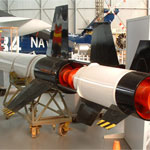
Vexin-A Rocket Engine now on Display
Four Vexin-A engines were used on the Coralie, which formed the second stage of the Europa
launch vehicle as part of a programme run by ELDO (the European Space Launcher
Organisation).
The Europa rocket was flown from its launchpad on the North shore of Lake Hart within
the Woomera Range perimeters between June 5, 1964 and June 6, 1970.
For more information,
click here

Skylark Rocket
with Lupus 1A Booster
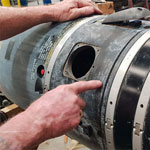
Skylark
Instumentation
Head
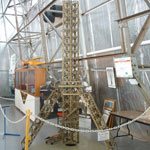
Model
Skylark Rocket
Launch Tower
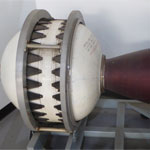
Waxwing Apogee
Solid Fuel
Booster Motor
(used on Black Arrow)
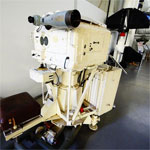
X-Tracker
2 person
Optical Missile
Tracking System
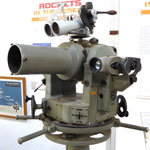
Askania Kinetheodolite
for Photographic
trajectory data.
